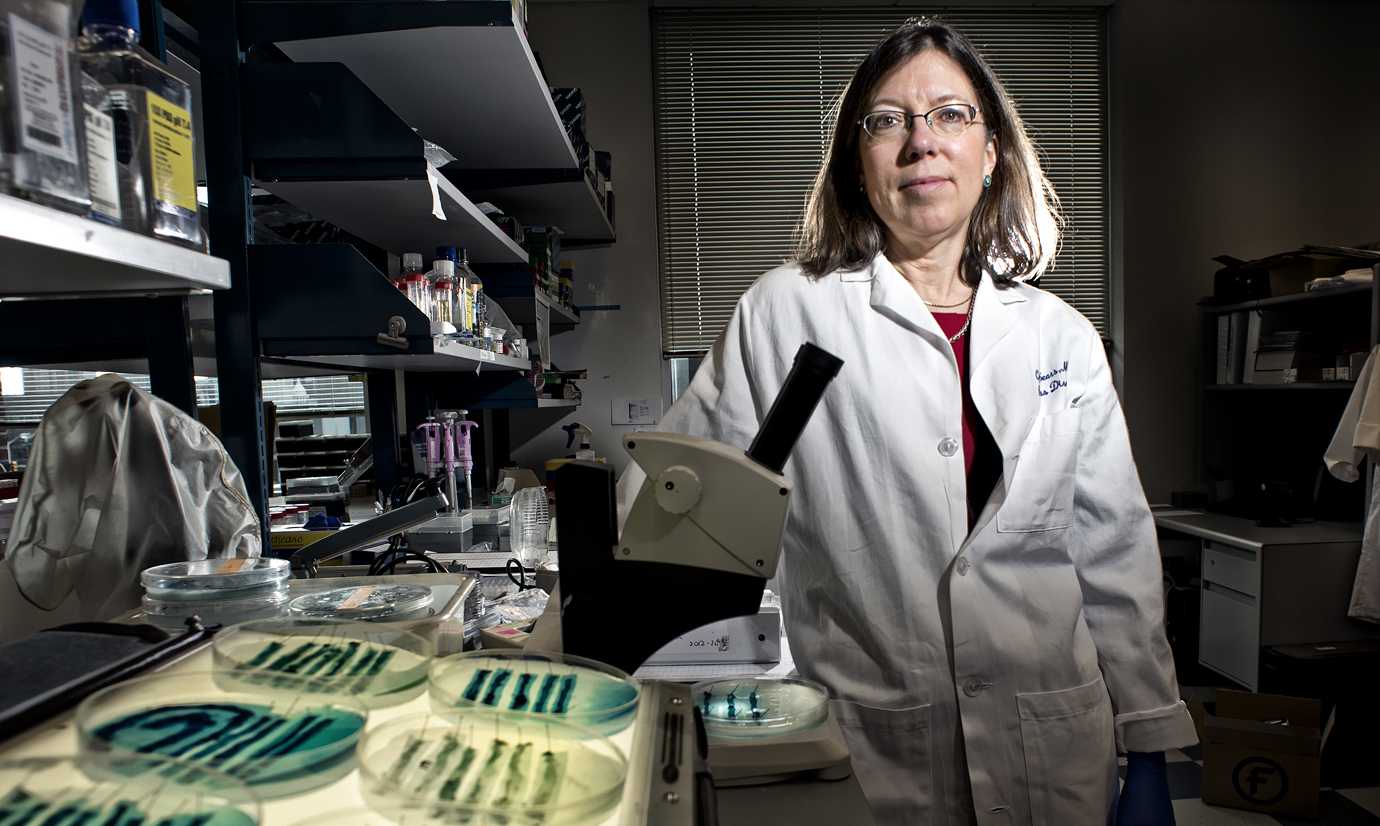Could a biofilm that forms on the lining of some people’s colons put them at greater risk for cancer? Gastroenterologist Francis Giardiello and infectious disease specialist Cynthia Sears think so.
The Johns Hopkins Medicine doctors won funding from the National Cancer Institute for a five-year study of the biofilms and how they might be linked to cancer. To conduct their research, they are collecting biopsies from patients who agree to take part in the study while getting colonoscopies. The challenge, says Giardiello, is getting enough biopsies to make the research meaningful.
“If 15 percent of patients have biofilms, we need several thousand patients in order to make a correlation between the biofilms and an elevated cancer risk,” says Giardiello.
To help them secure the 2,000 study subjects promised in their winning grant proposal, the investigators turned to the Johns Hopkins Clinical Research Network. The network, established in 2009 within the Institute for Clinical and Translational Research, began as an alliance with the Anne Arundel Medical Center in Annapolis. It now gives Johns Hopkins researchers access to an estimated 9 million potential study participants in Maryland, Virginia, Washington, D.C., Pennsylvania and Florida hospitals.
The network, which added the seven-hospital Pittsburgh-based Allegheny Health Network in 2017, includes the entire Johns Hopkins health system; Anne Arundel Medical Center; Inova Health System in Northern Virginia; Peninsula Regional Medical Center in Salisbury, Maryland; and Reading Health System in Reading, Pennsylvania. The health systems all use the Epic electronic medical records system, which helps with data sharing.
Using this network, Giardiello and Sears collect information from colonoscopy patients at three sites: a private practice affiliated with Reading Health System; an outpatient clinic at Green Spring Station run by Johns Hopkins faculty; and a Johns Hopkins outpatient clinic in White Marsh.
“The clinical research network gave us the confidence in applying for the grant that we could accumulate the sample size that we needed,” says Giardiello, noting that an earlier proposal for 1,000 subjects was rejected. “It also smoothed things out from an administrative standpoint because we have a single consent form and a single database.”
In the study’s first year, the team collected nearly 1,000 samples. “If it had been just Green Spring or White Marsh, it would have been roughly half,” says Giardiello.
Research partnerships are not new, but the Johns Hopkins Clinical Research Network is different. With other types of collaborations, each institution secures and manages its own funding, and investigators share leadership. With the clinical research network, Johns Hopkins takes the lead on funding and research for all network member institutions, explains Adrian Dobs, director of Johns Hopkins’ research network.

“We believe this network is a real plus for Hopkins investigators because it gives them access to a large and diverse population from which to recruit,” she says.
In the eight years since the network was founded, it has supported 38 studies, including six that were launched in 2017. Since 2014, the network has also held an annual symposium and awarded a $50,000 grant each year.
In 2016, the Johns Hopkins University School of Nursing joined the network, with nurses as principal investigators for two studies. One, led by Elizabeth Scala, is looking at how to engage clinical nurses in research. The other, led by geriatric nurse Suzanne Dutton at Sibley Memorial Hospital, centers on teaching new nurses about health issues for older LGBTQ patients.
Through the network, Dutton is showing a documentary called Gen Silent to nurses in residency programs at Sibley Memorial Hospital, Suburban Hospital, Anne Arundel Medical Center and the Reading Health System. The nurses fill out questionnaires that gauge their understanding of the health issues facing this population before and after the film and then three months later.
“With the nurse residency program, there may be 15 people in a cohort. For me to get a substantial sample, it would take me years. With four hospitals, we can get our sample probably within a year,” she says. “There is no way I would do any kind of multisite study without them helping me with the process.”
